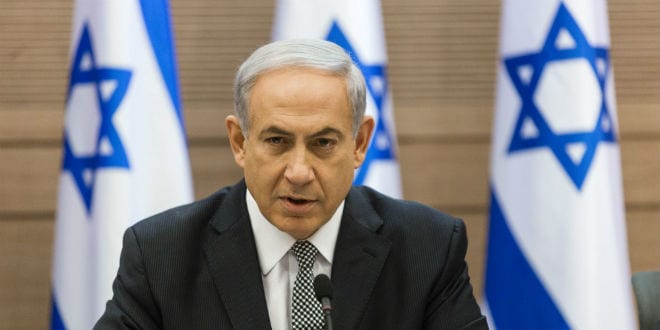Israeli Prime Minister Benjamin Netanyahu defended his decisions during Operation Protective Edge in the wake of public criticism over the results of the over month long conflict.
“In the face of all the criticisms, in the face of all the critics, in the face of all the background noise and private interests – I was unfazed and I was very determined,” Netanyahu stated.
In a lengthy interview with Channel 2, the prime minister maintained that he and his government acted responsibly towards the citizens of Israel and said that he strived to maintain an outcome that was not another Israeli “Fallujah” in Gaza.
Netanyahu said that he has not yet ruled out retaking the Gaza Strip and ousting Hamas in the future, but conditions are not yet ripe for such extreme action. He said that should Israel go in to Gaza, it would come at a heavy price and would incur lasting consequences for the Jewish state.
The prime minister pointed to the US’s war in Iraq in order to illustrate his caution behind the operation in Gaza. The US suffered many casualties in extreme battles in order to rid the city of Fallujah of militant forces. Once US forces left Fallujah, all their efforts were quickly undone.
“The US fought against a smaller Gaza called Fallujah…Fallujah is a tenth the size of Gaza. The great United States fought in Fallujah, its Gaza, sacrificed hundreds of soldiers who fought bravely…Went in once, twice, three times,” Netanyahu explained.
“Thousands of Iraqis were killed there. Many thousands. And in the end it went out and al-Qaeda came back,” he said.
Netanyahu maintained that temporarily taking over Gaza and ousting Hamas would open up Israel to high military and civilian casualties as well as increase the threat towards Israel coming from the Strip.
“If we pay those prices, and they are heavy prices, we may need to stay there,” he said.
However, the prime minister pointed out that Israel has other fronts to worry about besides the Gaza Strip.
“We have al-Qaeda on the fence now in the Golan Heights,” referring to al-Qaeda linked rebels in Syria who captured the Quneitra border crossing in Syria (the only border crossing between Israel and Syria) from army forces.
“The Islamic State is racing towards us and al-Qaeda is on the Golan border…I chose in this reality not to invest all our resources in this one arena (Gaza),” he said.
Netanyahu believes that at this time, Hamas has been dealt a serious blow and is unable to rearm, thereby thwarting a major threat towards Israel.
“I believed that what we should do at this time is simply to pound them. So maybe they remain in power but they are pulverized; they are isolated; they cannot smuggle weaponry,” he explained. “We’ve done this. We’ve dealt them a terrible, terrible blow…We’ve given Hamas a thrashing that it will remember for many years.”
The prime minister expressed his optimism that the current ceasefire with Hamas can lead to lasting peace. “I think this creates a chance – not a certainty but a chance – for us to have lasting quiet,” he added.
While Netanyahu remained positive, he made clear that he and his government will have zero tolerance for any “drizzle” of rocket attacks. He vowed that Israel would hit Hamas even harder should any further rocket fire occur.
“Drizzles will be answered with a downpour,” he threatened.

Over the course of Operation Protective Edge, clashes between Netanyahu and certain government ministers over the handling of the situation remained in the public eye. Economy Minister Naftali Bennett and Foreign Minister Avigdor Liberman made repeated calls for the full ousting of Hamas, saying the operation in Gaza was a golden opportunity. Both ministers made no secret of their disapproval of the prime minister’s decisions.
However, Netanyahu seemed to downplay to public clashes. “There was some creaking,” he said, but “up to this point the government has acted as it should.”
Speaking on the future peace process between Israel and the Palestinians, Netanyahu said that the recent conflict opened the eyes of many Israelis on how dangerous Palestinian sovereignty in Judea and Samaria could be if Israel’s security concerns were not guaranteed.
“My insistence on the security issue is not better understood, I think. The problem of demilitarization which I believe is not only true for Gaza but for the West Bank as well: Who will prevent tunnels from being dug? Who will prevent rockets from being manufactured? Who will demilitarize the territory?” he asked.
“You can’t talk about a diplomatic process without talking about security,” Netanyahu said.
In what many are calling a diplomatic opportunity for Israel to make peace with the Palestinians, Netanyahu said that he’s “never had any illusions about the Middle East.”
“When the Arab Spring, the so-called Arab Spring erupted, I said there wouldn’t be any great liberal forces coming forward, that there would rise Islamic movements,” he said. With the rise of the Muslim Brotherhood in Egypt and ISIS across the Middle East, the prime minister’s predictions have proven true.





